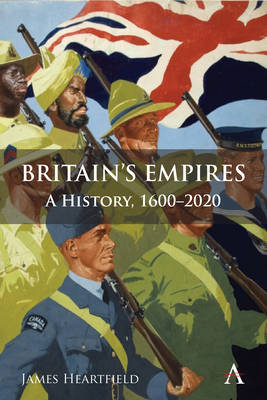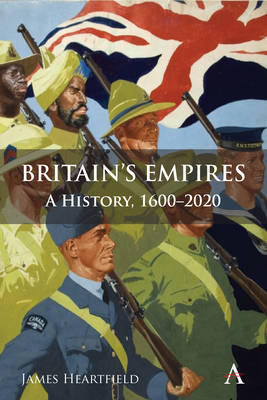
- Afhalen na 1 uur in een winkel met voorraad
- Gratis thuislevering in België vanaf € 30
- Ruim aanbod met 7 miljoen producten
- Afhalen na 1 uur in een winkel met voorraad
- Gratis thuislevering in België vanaf € 30
- Ruim aanbod met 7 miljoen producten
Omschrijving
For more than four centuries, Britons have been dominating and colonising other peoples and territories. Britain's Empires tells that story without flinching from the oppressive and exploitative side of the imperial mission that shaped world history. It also aims to tell the story of the colonial past as one marked by change and reinvention, where each new era was embarked upon as a break with the past.
This is history of the many different British Empires - the Old Colonial System (1600-1776), the Empire of Free Trade (1776-1870), the New Imperialism (1870-1945), Decolonisation (1945-1990) and the era of humanitarian intervention (1990-2020).
As well as explaining the importance of 'primitive accumulation' to kickstarting British capitalism in the Old Colonial Era, Heartfield shows that the New Imperialism of the 1880s was in large part a response to economic exhaustion in the mother country, and an attempt to find a new purpose in the colonies. Britain's Empires also explains the dynamics of decolonisation in the post-war era, the rebalancing of Britain's relation to the world that allowed it to create an arm's length relation to newly independent ex-colonies, while carrying on extensive military interventions overseas. The book concludes with an assessment of the post-Cold War resurgence of 'humanitarian intervention' in the less developed world, in an important retrospective account.
Britain's Empires explains how imperial policy dominated andskewed the history of societies across the world, from Canada and the West Indies to Ireland, from Africa to the Middle East, from India to China and into Australasia; but also how the peoples of those territories imposed themselves on Britain, challenging slavery, standing up to colonial overlords and eventually overthrowing them.The book explains how the reinvention of Britain's Empire reworked its critics protest to reinvent colonisation as a struggle against slavery in the mid-nineteenth century, and a civilising mission at that century's end. The capacity of Empire to foster local native allies helped stabilise a polity of extraordinary reach. But as Heartfield explains, the subordination of a quarter of the world's landmass was often a defensive reaction to internal limitations and other imperial challenges. The history of Britain's Empires, explains Heartfield, is one of constant challenge and change, where vanquished become victors, and heroes often turn out to be villains.
Specificaties
Betrokkenen
- Auteur(s):
- Uitgeverij:
Inhoud
- Aantal bladzijden:
- 506
- Taal:
- Engels
- Reeks:
Eigenschappen
- Productcode (EAN):
- 9781839987243
- Verschijningsdatum:
- 6/12/2022
- Uitvoering:
- Hardcover
- Formaat:
- Genaaid
- Afmetingen:
- 152 mm x 229 mm
- Gewicht:
- 911 g

Alleen bij Standaard Boekhandel
Beoordelingen
We publiceren alleen reviews die voldoen aan de voorwaarden voor reviews. Bekijk onze voorwaarden voor reviews.








